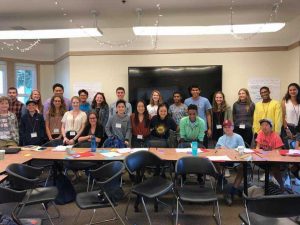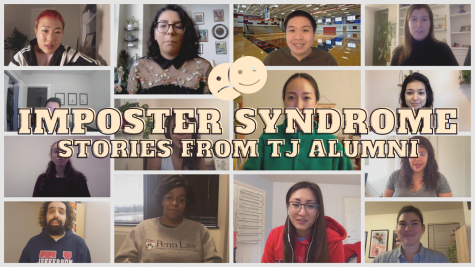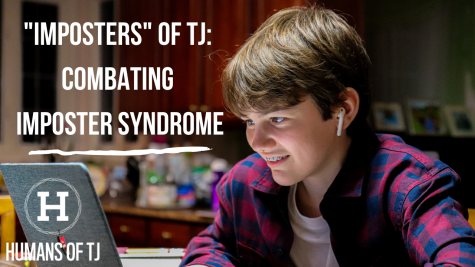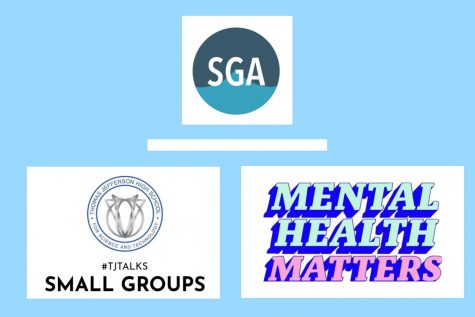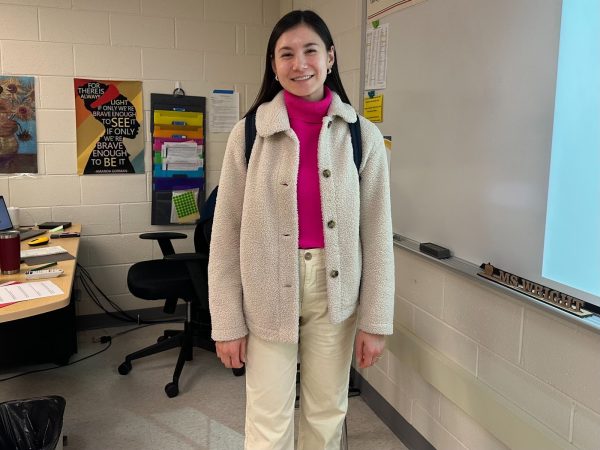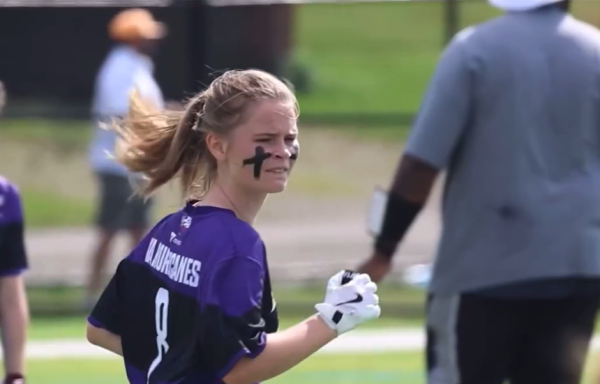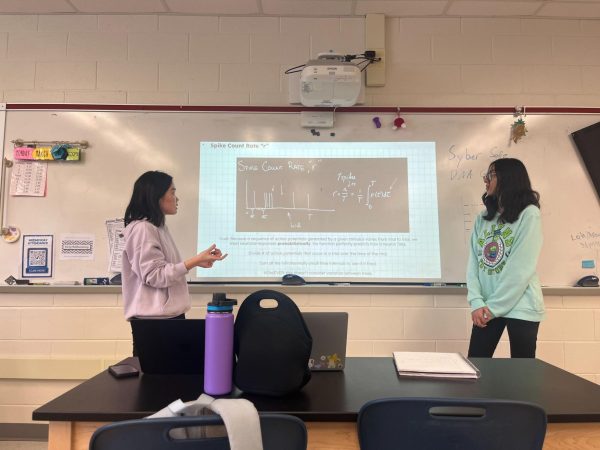Challenging the definition of success
With a growing emphasis on mental wellness, Jefferson enrolls in a Stanford-based program known as Challenge Success, which works with schools to help create a more nurturing environment for students to grow
Sophomore Amber Garcha works on her homework in the IBET commons. Garcha is on the student team for Challenge Success, hoping to help foster a better environment at Jefferson.
Seventy three percent.
That’s the number of high school students across the United States saying that schoolwork is their sole cause of stress.
Obtained from Challenge Success, this data shows that the majority of high schoolers across the nation are impacted in some way, whether that be positive or negative, by their school workload.
Although challenging schoolwork and tests can lead to a healthy amount of stress, this leads to the question: how much stress is considered healthy?That is where Challenge Success comes into play. Its goal is to identify the root causes of unhealthy stress and find new solutions to making Jefferson, and other middle and high schools, a more comfortable and accommodating environment for students.
The beginning
Sophomore Amber Garcha decided to be part of the Challenge Success team because she felt that she could make a difference in the Jefferson community and because she envisioned ways it could become a better learning environment.
“I was tired of seeing all my friends and other people being buried in homework and missing opportunities to just relax and have fun because of their crazy workload,” Garcha said. “Plus, I’ve always thought about the ways TJ could improve, and Challenge Success was the perfect way to make those changes and start helping the school.”
The student team is made up of Garcha, junior Laney Moy, and senior Ethan Phillips. However, students aren’t the only ones involved in making transformations to the Jefferson community, parents and staff members are also collaborating with them. The staff team is comprised of Mark Forgash, Malcolm Eckel, Mary Beth Kochman, Anthony Powell, and Jefferson principal Ann Bonitatibus.
Before deciding to implement Challenge Success, a lot of research took place to compare various programs and determine whether they fit the community at TJ.
“Last year, Dr. Bonitatibus brought the idea of implementing the Positivity Project at our school to SGA,” Phillips said. “As a member of SGA, I felt that that program had a lot of faults and worked with the administration to try and reach an alternative. Dr. Bonitatibus later presented Challenge Success to us, whose structure and research-backed methods fit TJ much better.”
Bonitatibus agreed that Challenge Success was a fit for the Jefferson community.
“After lots of different conversations, we felt that [Challenge Success] worked best for us because it gives us the tools that we need to study ourselves, to identify what we think our root causes are, and then it allows us to develop responses that are appropriate for our school,” Bonitatibus said.
Upcoming changes
On Oct. 26, a Challenge Success survey was administered to students in hopes of gaining feedback of where the Jefferson community stands as a whole on topics such as workload and mental health. In the future, based on the survey results, changes could possibly be implemented to help improve aspects of the school.
“I really hope that Challenge Success can bring TJ back to the school it used to be, where everyone was interested in the learning and experiences rather than just the grades and college apps. I also really want Challenge Success to make TJ a place where students and teachers aren’t constantly crushed by the academic pressure all around them. TJ should be a place that people look forward to going to everyday,” Garcha said.
Challenge Success is one of the many paths an individual school can take to improving mental health. However, it should not be the only path, as there won’t be instantaneous changes.
“Mental health in particular is a complex and multifaceted problem that everyone can have a hand in addressing,” Eckel said. “The difference between those initiatives and this one is that we have the stakeholder representation, and the ability to make policy decisions at any level.”
Some possible changes that Challenge Success will bring can morph the current challenges at Jefferson into a more real-world perspective, allowing students to apply their knowledge outside of school.
“I know that there won’t be any huge changes or improvements to the school culture before I graduate, but my goal is to leave the school a better place than when I entered as a freshman. I think one of the best ways we can do that is by rethinking how students are assessed and taught,” Phillips said. “All of the research available says that standing in front of a white board and lecturing is just not engaging or effective. The real world doesn’t make you take tests and quizzes, it challenges you in other ways and makes you think outside the box. We need more of that here at TJ.”
Read the original print article and the rest of the November 2018 print issue below:


![Juniors Caroline Chen, Shruti Rajesh, Meera Gupta, and Amber Garcha participate in a Challenge Success Student Forum. “[We hope] to find what teachers and the admin can do to help make the students’ lives better,” said Amber Garcha, leader of this forum, where students are encouraged to share ideas about how to improve Jefferson.](https://www.tjtoday.org/wp-content/uploads/2020/02/Screen-Shot-2020-02-05-at-11.48.54-AM-300x191.png)
